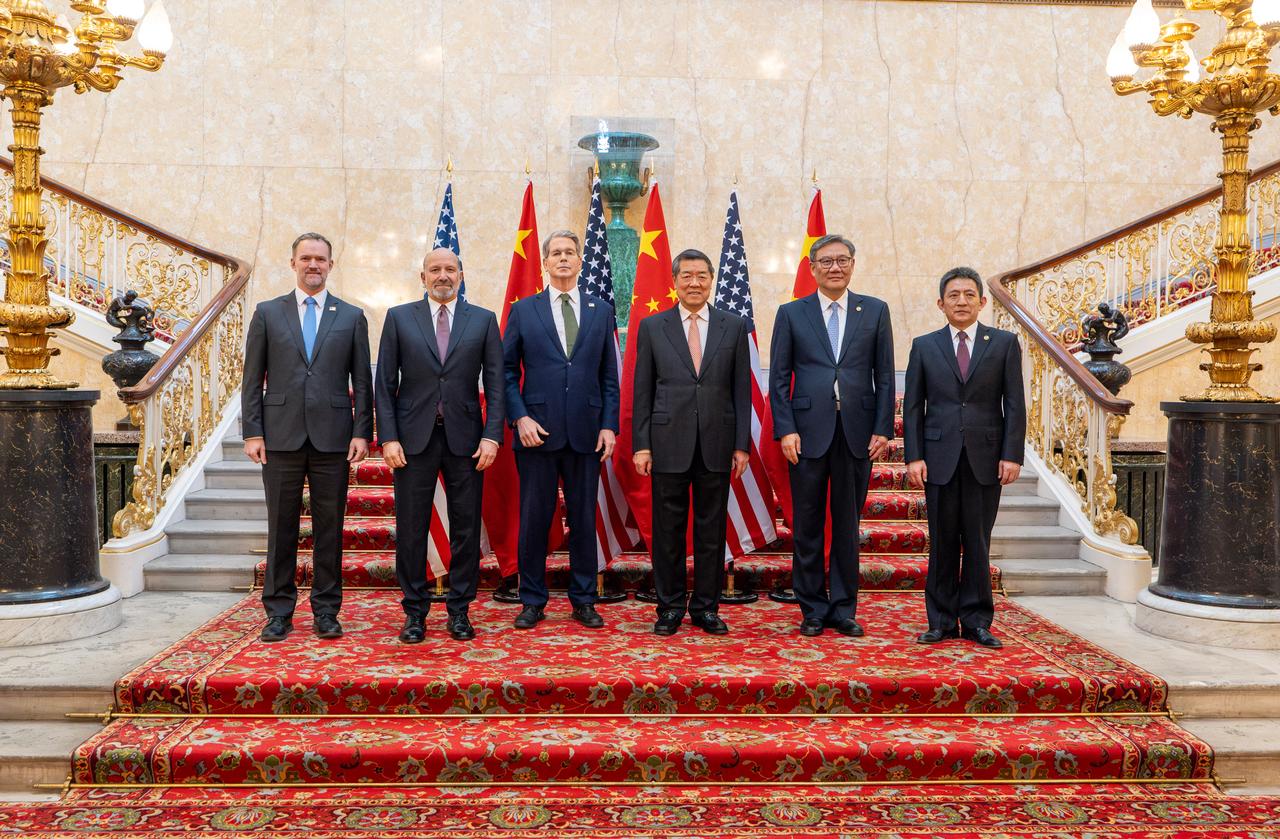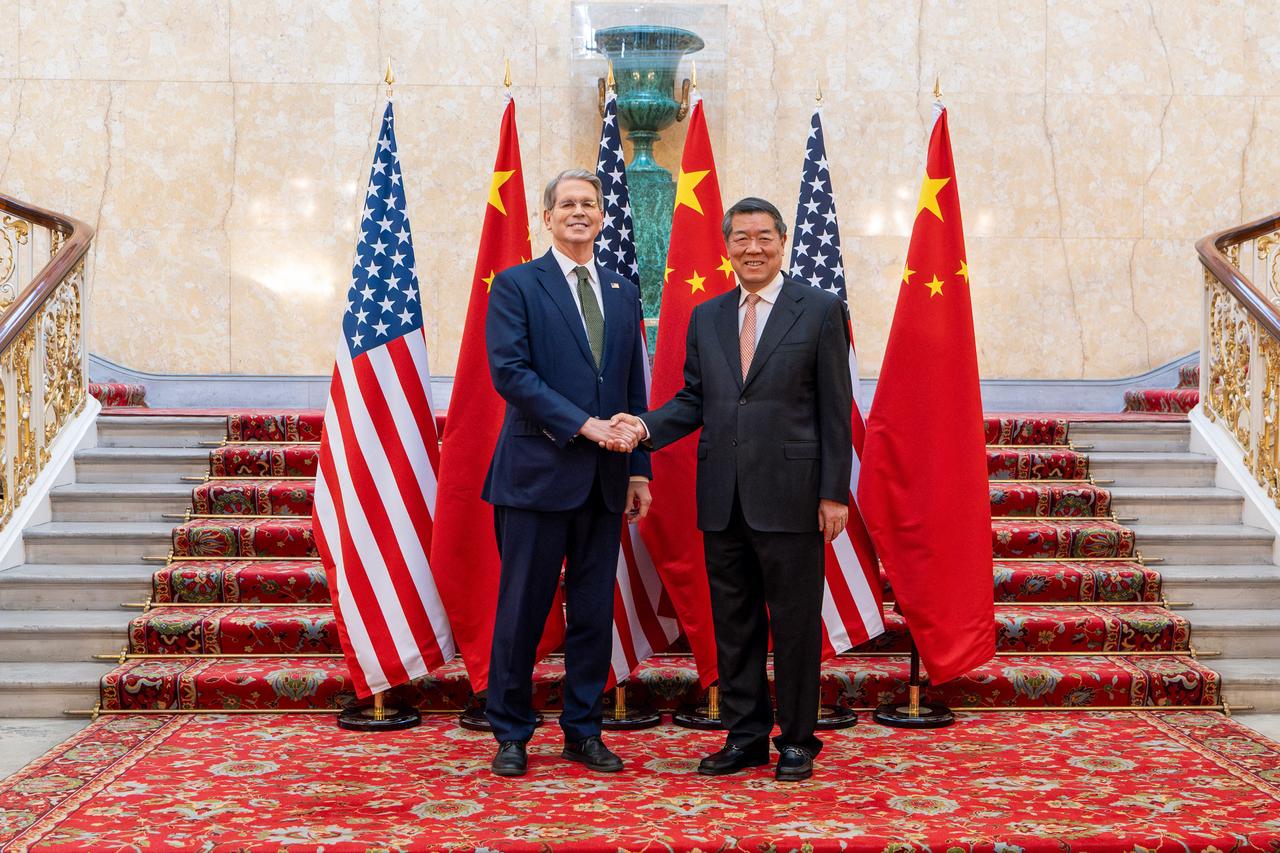
The United States and China have reached an initial “trade framework” following two days of negotiations in London, signaling a possible breakthrough in the prolonged dispute between the world’s two largest economies. However, the framework remains subject to approval by top leaders in Washington and Beijing, officials said on Tuesday.
The talks, held at the Lancaster House in the British capital, focused on overcoming disagreements over export controls and tariffs that have strained global supply chains and roiled financial markets.
According to Chinese trade envoy Li Chenggang, the two countries agreed in principle on a framework to implement the earlier consensus reached by Presidents Donald Trump and Xi Jinping on June 5, as well as commitments made during a separate meeting in Geneva on May 12. That earlier agreement had included a 90-day suspension of most duties and a rollback of tariffs introduced since early April, when the Trump administration began implementing “reciprocal” levies against several trade partners.
Li noted that both delegations will report the outcome of the London meetings to their respective leaders for further evaluation and potential endorsement.

Following the talks, U.S. Commerce Secretary Howard Lutnick expressed hope that ongoing disputes over rare earth minerals and magnets—critical components in high-tech industries—would be resolved during the implementation of the proposed agreement.
“We're moving as quickly as we can,” added U.S. Trade Representative Jamieson Greer, who described the relationship with China as complex but reiterated the administration’s desire to strike a deal that works for both sides. He stressed that the U.S. side remains committed to constructive engagement.

Meanwhile, the U.S. Court of Appeals for the Federal Circuit has allowed President Trump's global tariffs to remain in place while the case is reviewed on an expedited schedule. This decision provides a temporary reprieve for the administration, which is appealing a lower court’s ruling from May that blocked most of the wide-ranging levies because the president had exceeded his authority.
Arguments in the case are set for July 31, meaning the current tariffs will likely remain in effect for at least two more months. The legal challenge stems from the Trump administration’s imposition of across-the-board duties that were met with criticism both domestically and abroad.
Amid the evolving trade landscape, European Central Bank President Christine Lagarde warned of the broader risks posed by coercive trade measures. Speaking during a visit to the People’s Bank of China in Beijing, she called on countries to protect the multilateral trading system and to seek compromise despite geopolitical tensions.
Lagarde emphasized that such policies “are far more likely to provoke retaliation and lead to outcomes that are mutually damaging.” She urged governments to consider how their domestic policies might be contributing to global trade friction and warned that continued escalation could erode the foundations of global economic stability.